MA in Playwriting and Adaptation: Stage Screen and Beyond
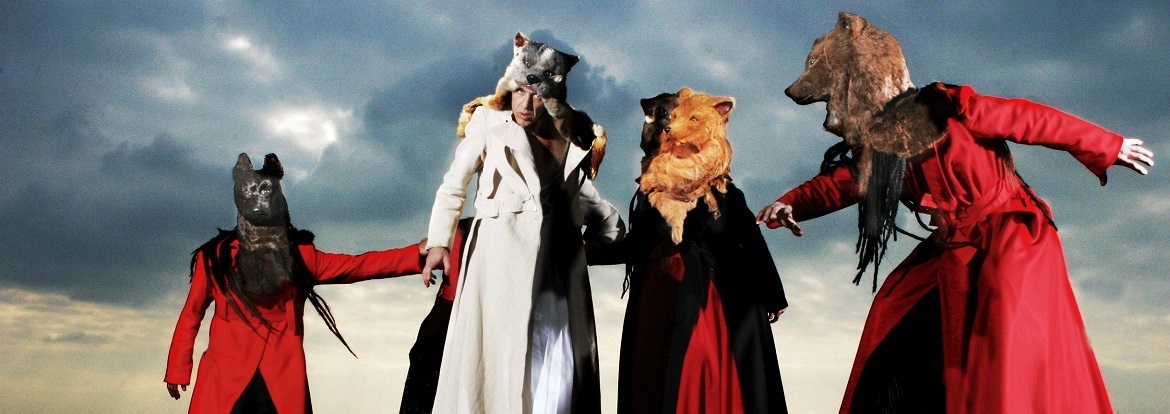
Banner image: Friches Théâtre Urbain, Macbeth adapted for performance on the street
Degree Overview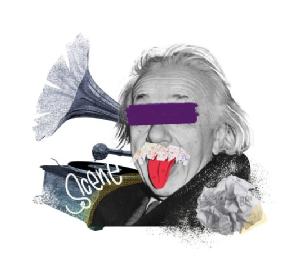
Legend has it that Albert Einstein said ‘Imagination is more important than knowledge. For knowledge is limited, whereas imagination embraces the entire world, stimulating progress, giving birth to evolution’. But whether he said those words or not, the ideas they express suggest the lodestars of Warwick’s MA in PLAYWRITING AND ADAPTATION: STAGE, SCREEN AND BEYOND, a course that offers a unique combination of play/script writing and adaptation for stage, screen, and beyond. MAPA helps you develop your own ways to meet the demands of being an innovative play/script writer and adapter of texts in the contemporary world. We invite you to explore, research and develop a variety of original plays/scripts and adaptations for a range of performance settings and production contexts from stage, screen, and radio performance to commercial and non-traditional contexts. The programme is aimed at emerging writers interested in writing in a performance-based context as well as more established writers wishing to hone and expand their skills. By the end of the course, each student will have completed a full-length play/script and several short plays/scripts for a range of media.
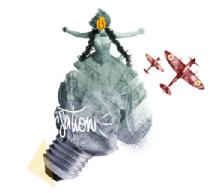 How will you learn in MAPA?
How will you learn in MAPA?
You will learn through a range of teaching methods from practical workshops and feedback sessions to seminar discussions and cold or semi-staged play readings. Through interaction with both the core teaching staff and with a range of guest artists and leading industry practitioners, you will develop skills, acquire and construct knowledge, and receive practical support to succeed in writing for stage, screen and beyond. You will benefit from guest workshops and master classes, including two intensive weekend teaching blocks (one each in the autumn and spring terms), that will facilitate a more immersive teaching/ learning experience with professional practitioners.
Forms of Assessment
Your forms of assessment will include a range of plays/scripts and adaptations of various lengths, but also the designing of a detailed research process for script development, semi-staged readings of your work, and portfolios (some focusing on critical reflections on your writing process, others on script writing tools, such as synopsis, treatment, storyboards, etc.).
The Summer Writing Residency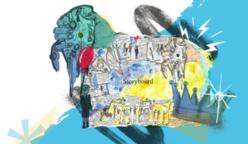
The Summer Writing Residency is a unique feature of this course where you will work closely with a professional artist who will share his or her skills to further broaden your own skills and who will challenge you to push your work to the next level. Building on the Summer Writing Residence, you will work closely with your mentors from the core faculty to perfect your final writing project.
Life After MAPA
Throughout the course you will be exposed to regular professional developing sessions to help you map your path after MAPA.
- If you want to pursue a career in writing for stage, TV, film and radio
- If you want to develop your dramaturgical skills for working as dramaturg (both in New Writing and in production dramaturgy) and/or a literary
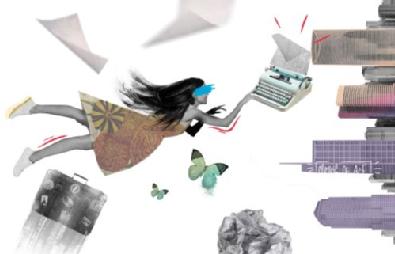 manager
manager - If you want to transfer your writing skills to creative sectors of advertising, digital or gaming industry
- If you are interested in applying your skills to commissioned writing for events and organisation
- If you think of a career in teaching and research in FE/HE
- Or the combination of any of the above (and beyond)
Who are we?
Core Course Team at the University of Warwick
Susan Haedicke, Co-Director of MAPA
Susan Haedicke works as a freelance dramaturg/adapter sometimes for plays in traditional theatre settings, such as her clown version of Hamlet, but more often for outdoor performances in public spaces and socially-engaged performance work. She is particularly interested in production dramaturgy, developing devised pieces on environmental issues and agriculture. Haedicke has adapted several Shakespeare plays, for example, Macbeth for a street performance with fireworks and actors on stilts that toured around Europe and Asia and most recently, The Winter’s Tale performed in and around the ruins of Coventry Cathedral.
Silvija Jestrovic, Co-Director of MAPA
Silvija Jestrovic, playwright and dramaturg, has written plays for professional productions on stage, radio and television, notably Lotta Lenya, This Dance is for the Ladies, and Not My Story. With her one-act play, Hands, commissioned by PEN Canada and the Cahoots Theatre Company in Toronto, she participated in the Arts for Real Change Festival (Arc Fest). She has also been awarded prestigious writing residencies in the Banff Centre for the Arts, Tarragon Theatre (Toronto) and Playwright’s Workshop Montreal. At Warwick, she has been teaching Playwriting for Theatre and Performance for over fifteen years and was the lead on the Playwriting at Warwick Project.
Gonzalo Ceron Garcia
Gonzalo Ceron Garcia is a novelist and Creative Writing lecturer at the University of Warwick who uses gaming structures in innovative pedagogical approaches to creative writing. His recent novel, We Are The End, is heavily influenced by his interest in Santiago de Chile, video games, digital culture and everyday constructions of narrative. It was nominated for the Edinburgh Festival First Novel Award 2017 and launched in October 2017 with Galley Beggar Press. He is now writing his second novel, and is currently on the judging panel for the Sunday Times Young Writer of the Year Award.
Milija Gluhovic
Milija Gluhovic’s research interests include contemporary European theatre and performance, memory studies, psychoanalysis, and politics. He is currently developing pedagogic research on contemporary practices and genres of theatre criticism. His recent publications include Performing European Memories and co-edited volumes International Performance Research Pedagogies and The Oxford Handbook of Politics and Performance. He was Director of the Erasmus Mundus MA in International Performance Research at Warwick (2010-15) and taught as a visiting scholar at the universities in Helsinki, Amsterdam, Belgrade, and Ljubljana. He was a member of the April Productions theatre collective in Toronto.
Anna Harpin
Anna Harpin runs a theatre company called Idiot Child who create playful and peculiar work about how hard it is to be alive sometimes. The company always start with autobiography and devise their unusual tales from there. The company are particularly interested in working with audiences in inventive and joyful manners. In addition to this work, Harpin works as a freelance director and in this role has worked on adapting prose text to performance. Harpin is particularly interested in the relationship between text-led work and body and object-led devising.
Andy Lavender
Andy Lavender’s work as a theatre director includes adapting classical texts, developing productions through devising and improvisation processes, and creating material through concept development and timeline techniques. His productions have been presented at the Battersea Arts Centre, Young Vic, Lyric Hammersmith, Pleasance and Young Vic Studios, London; UK venues including the Drum (Plymouth), Green Room (Manchester), Tron Theatre (Glasgow), Everyman (Liverpool) and Warwick Arts Centre; and in festivals including the London International Mime Festival, GLAZ Digital Stages, Mimos (France), and the Gdansk International Shakespeare Festival.
What will you be learning in MAPA?
Core Modules:
All modules on this course are core modules.
Autumn
-
Writing For Live Performance
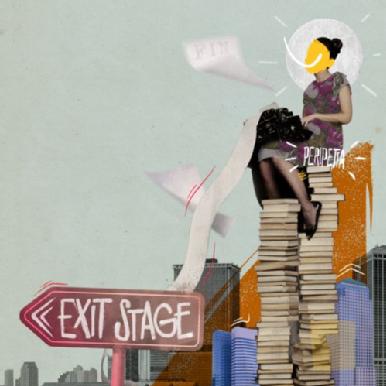
Refining your skills in the craft of dramatic writing in varied forms represents the core of this module. That craft includes, but is not limited to, creating memorable characters, developing unexpected stories in unexpected ways, and experimenting with form, language and dialogue. You will practice writing performance-based texts for live performance: traditional plays and beyond them, including verbatim, scripts developed from devising, site-specific theatre, Immersive theatre, puppet plays, museum performance and others. The specific alternative forms taught in this module vary from one year to the next.
-
Dramaturgical Thinking for Script Development
Where do you begin? Assuming inextricable links between play/scriptwriting and dramaturgical thinking, this module focuses on a range of research skills necessary for script development: from searching for little known facts in archives and decolonising research methodologies to interviewing, documenting oral histories, conducting (auto)ethnography, and participating in action research techniques of participant-observation and thick description. Here you will learn how to design your research process with its conceptual structuring of background information and narrative threads as well as associative thinking to find connections that are not obvious.
Spring
-
Adaptation
To explore concepts and practices of adaptation, you will start from a range of source materials: prose, poetry, music and lyrics, painting and other visual sources, historical and contemporary events, or autobiography/biography, whilst considering aesthetic, political and cultural specificities of these sources. You will be able to experiment with adapting the source material into varied forms and media
-
Writing for Screen and Beyond
While focusing primarily on understanding strategies and techniques specific to script writing for film, television, radio, and other media, you will also explore how these writing skills are transferable to writing for other settings (i.e., copywriting for advertisement, writing for gaming and digital media, and creating performance for non-theatrical settings, like, for example, the NHS).
Summer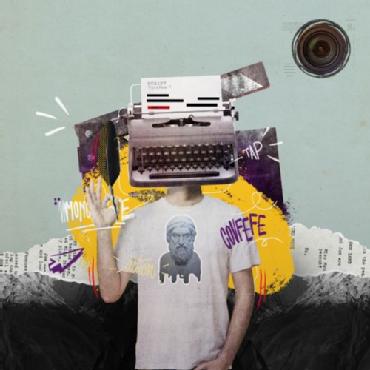
-
Final Project (full-length play/script for any media)
-
Writing Residency
A week-long intensive Writing Residency with a professional artist and members of the core course team in the summer term is key to the writing of your final project. Engaged participation in this writing residence acts as a stimulus to your development of a full-length script (or adaptation) for stage, screen, radio or beyond. This work will be developed under the supervision of a mentor from our core course team.
* The modules mentioned above may be subject to change. Please read our terms and conditions for more detailed information.
Associate Guest Artists
The MA in Playwriting and Adaptation for Stage Screen and Beyond will provide opportunities to work with and learn from a number of professional playwrights, dramaturgs and other performance-based practitioners working in the entertainment industry through workshops, guest lectures, weekend intensives, project work and a summer writing residency. Some possible guest artists may include:
Dr. Mojisola Adebayo: theatre artist, writer, performer, director, facilitator, academic. Her collections Plays One and Plays Two are published by Oberon. Her latest stage work includes Wind/Rush Generations(s) (National Theatre, Connections) and STARS (Homotopia Festival Liverpool and Ovalhouse)
Ola Animashawun: National Theatre Connections Dramaturg and co-founder and Creative Director of Euphoric Ink. He founded and ran the Royal Court Young Writers Programme and set up a nationwide writers’ programme, dedicated to finding and nurturing new BAME playwrights – Critical Mass.
Hajdana Baletic: is a screenwriter, playwright and novelist. Her plays were performed in Belgrade and London. Her work includes a script for a feature film “Take a Deep Breath” and 10-part TV Series “Dug Moru”. She co-operated with Sky Atlantic, Canal+, Warp films, Fox Kids, RTS among others and is currently developing two TV series in Germany.
Tim Crouch: Award-winning stage and TV writer, director and performer. His plays include My Arm, An Oak Tree, ENGLAND, The Author, Adler & Gibb, and I, Malvolio. His work has been translated into many different languages, and performed throughout the world.
Inua Ellams: Nigerian born award-winning poet, playwright and founder of the Midnight Run whose work focuses on reoccurring themes of identity, displacement and destiny. His books are published by Flipped Eye, Akashic, Nine Arches & Oberon.
Greg Homann: dramaturg, playwright, and leading South African director whose practice focuses on innovative forms in comedy and political theatre dealing with identity politics, prejudice, and lived experiences of the LGBTQI+ community.
Nancy Meckler: artistic director of Shared Experience who has developed and directed many adaptations, including Anna Karenina and Mill on the Floss, and two feature films. She has also directed at the National Theatre and Royal Shakespeare Company.
Alan Pollock: playwright, screenwriter, author whose stage plays include The Death Of Cool and One Night In November. He is the co-creator of the BBC2’s Attachments (starring Romola Garai and David Walliams ) and his radio work includes the 6 times repeated play Philip and Sydney. His film The Strange Death Of Daniel Dvorjak is currently in development.
Richard Shannon: playwright, director, educator with special expertise in radio drama. He was co-director of Independent Radio Drama Productions broadcasting on LBC Radio in London and National Public Radio in the USA; he also directed for BBC Radio 4.
Paul Sirrett: award-wining playwright and dramaturg with over twenty-five years’ experience as a workshop leader and lecturer at top UK theatre companies, universities and drama schools. Notable works include The Big Life, Reasons to be Cheerful, and Bad Blood Blues.
Katalin Trencsenyi: dramaturg and researcher who specializes in new dramaturgy and multi-modal play development. As an independent dramaturg, she has worked with the National Theatre, Royal Court Theatre, Soho Theatre, and has developed new work with companies such as Deafinitely Theatre.
Naomi Wallace: award-winning playwright whose plays, like One Flea Spare, deal with provocative political issues. Recently, Wallace has co-adapted novels for the stage, notably Returning to Haifa and The Corpse Washer. She is currently adapting the 1980’s rock song, Jack and Diane, into a book for John Mellencamp's new musical.
Louise Ann Wilson: artist and researcher who creates site-specific walking performances, films and installations, i.e., The Gathering/Yr Helfa with National Theatre of Wales on a sheep farm in Snowdonia. Wilson’s works address in/fertility, voluntary childlessness, terminal illness, ageing and other ‘missing’ or challenging life-events.
Essential Information
How to apply
Course Code
P-W441
Duration
Full-time: 1 year
Part-time: 2 years
Entry Requirements
Minimum requirements: You will have, or be expecting to obtain, a First or Upper Second Class honours bachelor's degree from a UK university or an equivalent qualification from an overseas university. Your degree will normally be in an arts, humanities, media or social science-related subject. Alternative subject routes for entry are possible if you can demonstrate that you have suitable experience and aptitude in order to meet the range of demands of the course.
The University of Warwick operates an Equal Opportunities Policy and values Diversity; it welcomes applications from people of all backgrounds.
English Language Requirements Band B
Overall IELTS (Academic) score of 7.0 and component scores
If English is not your first language you must demonstrate that you have oral and written fluency in English.
International Students
We welcome applications from students with other internationally recognised qualifications. For more information please visit the international entry requirements page.
Location of Study
University of Warwick
Course Fees
See Student Finance
Scholarships
The University is part of a number of prestigious government Scholarship schemes, including Chevening, Fulbright,
Commonwealth and Marshall. For more information click here.
Additional Course costs
Mandatory costs will include materials and printing for project assessment work at approximately £50 in total for the course. There may also be costs associated with travel to/from shows and other engagements with professional practice up to £60. Purchase of a laptop computer, at approximately £400, is recommended.
Useful Links
Banner image: Friches Théâtre Urbain, Macbeth adapted for performance on the street
